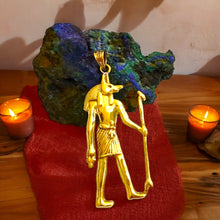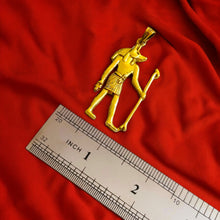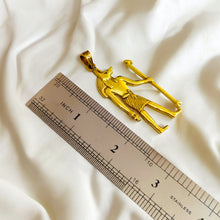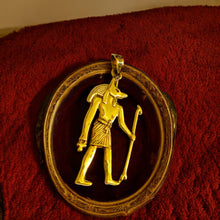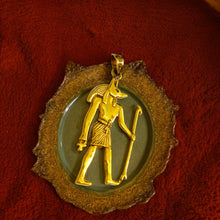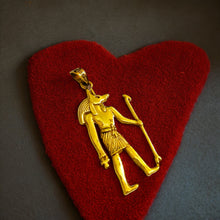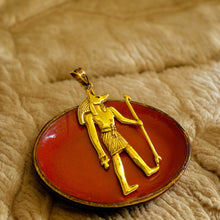
Discover the timeless allure of Anubis, the ancient Egyptian deity of mummification and the afterlife, with this elegant Gold God Anubis Pendant Necklace. Symbolizing protection and guidance, it embodies millennia of Egyptian mythology and craftsmanship.
- History: Ancient Egyptian deity associated with mummification and the afterlife.
- Spirituality: Represents protection, guidance, and safe passage into the afterlife.
- Talisman: Believed to ward off evil and bring blessings of wisdom and transformation.
- Handmade: Crafted with attention to detail, often using traditional techniques.
- Healing: Thought to promote spiritual growth and inner strength.
- Materials (Gold and Brass): Gold symbolizes eternity and divinity; brass enhances grounding and protection.
- Symbolism: Anubis embodies guardianship, transition, and rebirth.
- How to Wear: Ideal for chains up to 5mm, perfect for everyday spiritual adornment.
History Side For Those Who Are Interested







